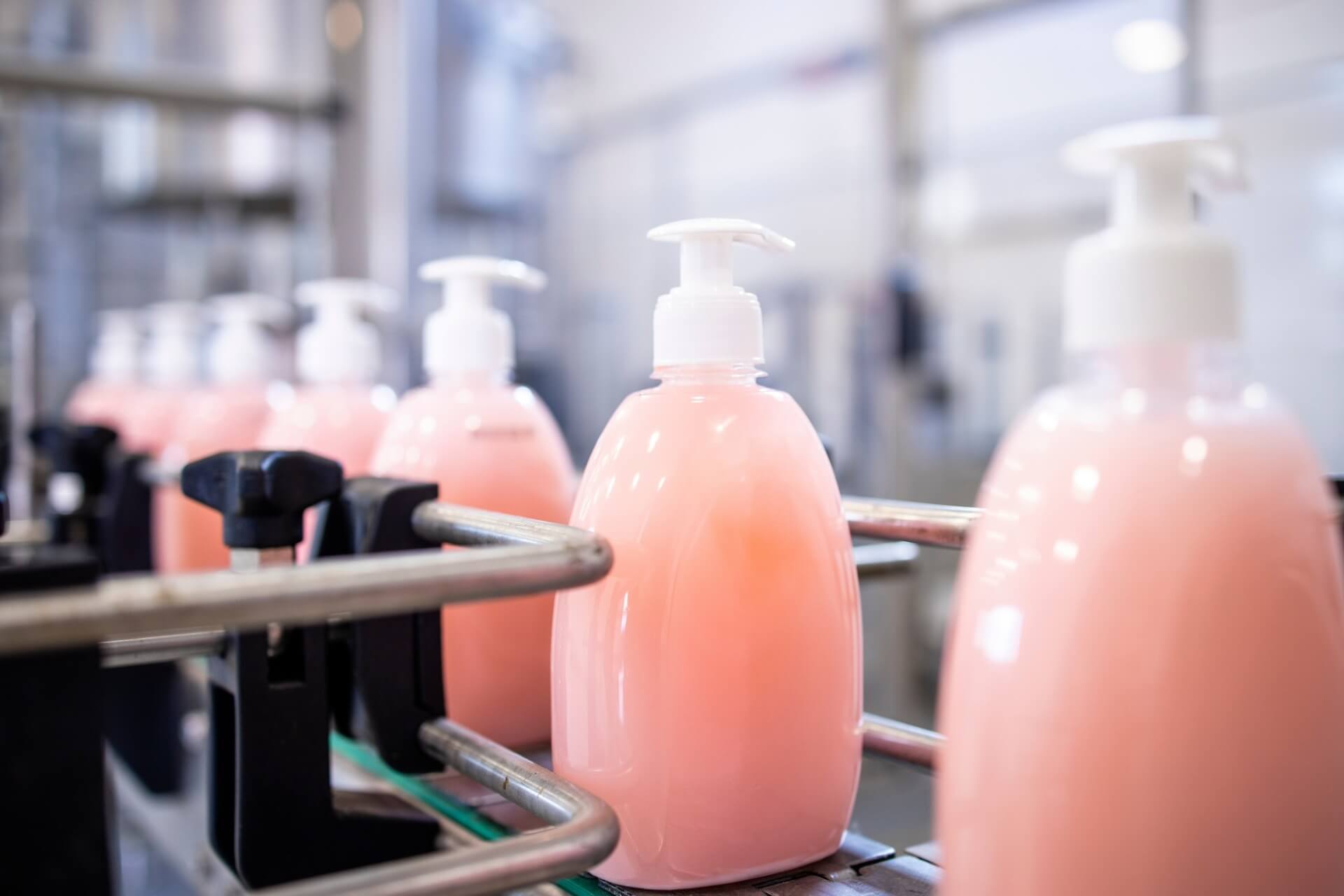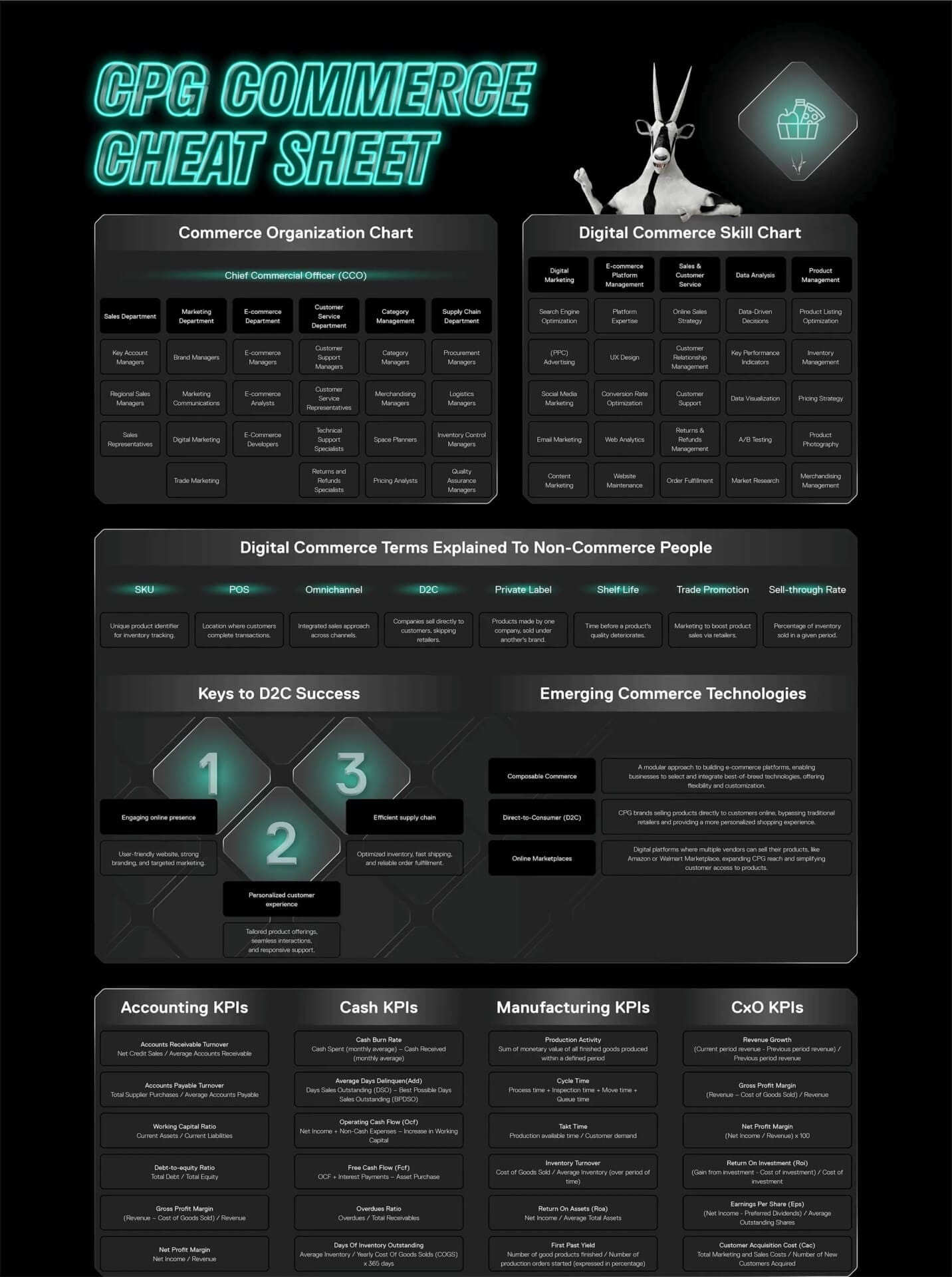Manufacturing
The State of CPG E-Commerce: Unveiling the 4 Key Trends Reshaping CPG Manufacturing
The Consumer Packaged Goods (CPG) industry stands at a pivotal moment in the digital revolution, facing challenges and opportunities driven by shifting consumer demands, sustainability imperatives, and the continuous advancement of technology. In this dynamic landscape, CPG E-Commerce players must adapt their strategies, leveraging key trends to lead the digital shelf.


Below, we explore the four essential trends shaping the future of CPG manufacturing:
CPG Manufacturing Trend #1: Artificial Intelligence
In an increasingly digitized world, traditional methods are going through a data-driven transformation, and it’s not surprising to see Artificial Intelligence (AI) at the heart of it. For CPG manufacturers, AI is a game-changer, offering those who leverage it a competitive edge in optimizing operations and enhancing product quality.
AI also helps reduce waste and, in turn, environmental impact – a crucial step for manufacturers going forward, which we’ll explore further in our second trend. From real-time quality control and supply chain optimization to product development, energy management, predictive maintenance, and personalized marketing strategies, AI’s potential impact on the industry is significant.
This has been demonstrated by Unilever, a pioneer in this space that utilizes AI to enhance raw material sourcing and employs robots on a single manufacturing line for diverse product handling. They also optimize processes with a digital twin system, integrating AI into marketing via trials with facial recognition technology and employing computer vision for emotion analysis.
The most famous example is their TasteFace campaign with the brand Marmite, where they used facial recognition to analyze consumers’ reactions to tasting the controversial ‘love it or hate it’ product. As Unilever illustrates, AI not only enhances efficiency but also fosters sustainable practices, a critical aspect in the era of heightened environmental consciousness.
CPG Manufacturing Trend #2: Sustainability
As shown by our last trend, digital transformation and AI have a huge potential for making a positive impact on sustainable practices. This matters in the landscape of CPG as sustainability has gone beyond a mere trend to become a business imperative, driven by heightened consumer environmental consciousness and a global push towards green practices.
For this reason, CPG manufacturers are redefining their approaches to focus on responsible material sourcing, ethical production processes, and environmentally friendly packaging choices. The adoption of blockchain technology is also on the rise, ensuring traceability of raw materials and verifying their origin and sustainability credentials. This shift isn’t just about meeting consumer expectations; it’s a paradigm change influencing the entire supply chain, from procurement to packaging.
Nestlé, a multinational food and beverage giant, exemplifies this escalated commitment to sustainability by actively working towards making 100% of its packaging recyclable or reusable by 2025. Moreover, the company collaborates with stakeholders to improve waste management and recycling infrastructure, actively engages consumers in responsible disposal practices, and explores innovative packaging solutions to reduce its environmental footprint. Nestlé’s multifaceted approach demonstrates that sustainability isn’t just a goal but a holistic strategy that can permeate every aspect of CPG manufacturing.
CPG Manufacturing Trend #3: Personalization
In the saturated B2B space, understanding and meeting the end consumer’s needs is crucial for establishing a competitive edge. Backed by McKinsey’s insights revealing a 40% revenue increase for those excelling in personalization, this shift emphasizes consumer-centric strategies as vital for B2B success.
For CPG manufacturers, effective personalization spans both traditional business customers and end consumers. Leveraging data and analytics is becoming fundamental, allowing manufacturers to tailor product assortments, provide value-added services, and offer data-driven insights. By doing so, manufacturers not only strengthen B2B relationships but also differentiate themselves in the market, translating personalized strategies into tangible business success. In our next trend, we’ll learn more about how personalization can positively impact larger business strategies, specifically loyalty and subscriptions.
Veri, a metabolic app, stands as a testament to the power of personalization. The app monitors glucose levels and makes personalized suggestions for users based on their unique data. It goes beyond traditional metrics, integrating sleep and exercise data to provide a comprehensive view of health. This approach transforms personalization from a buzzword into a tangible enhancement in consumers’ lives. Veri’s success showcases that personalization isn’t just a competitive advantage; it’s a pathway to a deeper understanding of consumers and their evolving needs.
CPG Manufacturing Trend #4: Loyalty & Subscriptions
In the B2B context, loyalty programs and subscriptions have emerged as pivotal strategies for CPG manufacturers, driven by the need to enhance customer experience and lifetime value. Tailored loyalty programs serve as a cornerstone for building and fortifying relationships with B2B partners, offering exclusive benefits to incentivize ongoing collaboration. Simultaneously, subscription models are gaining ground, allowing manufacturers to establish recurring revenue streams, ensuring predictability in operations and securing a steadfast customer base.
Beyond financial advantages, these initiatives provide valuable data insights on B2B customers, informing personalized offerings and bolstering further fidelity. Moreover, the interplay of loyalty programs and subscriptions facilitates collaborative planning and inventory management. By optimizing production processes and aligning distribution with B2B customers’ needs, industry leaders ultimately enhance efficiency and reduce costs.
Lenovo, a technology giant, showcases the potency of loyalty programs through LEAP (Lenovo Expert Achievers Program). LEAP offers exclusive benefits and rewards to business partner sellers, creating a personalized and enhanced experience. Lenovo’s approach goes beyond simple incentives by equipping sellers with the information and education needed for successful product sales. By turning loyalty into a two-way street, Lenovo ensures that both parties benefit from the collaboration, setting a precedent for how loyalty and subscriptions can be strategic cornerstones in the future of CPG manufacturing.

The Future of CPG E-Commerce
In the dynamic landscape of CPG manufacturing, these four trends — artificial intelligence, sustainability, personalization, and loyalty and subscriptions — are not isolated strategies but interconnected pillars of a new era. CPG manufacturers must acknowledge and embrace these trends, for they are not just patterns; they are the fundamental forces shaping the industry’s trajectory. As this sector continues to navigate the complex terrain of digital transformation, those who seamlessly integrate these trends into their strategies will not only succeed but lead us into the future of CPG manufacturing.
The CPG Playbook: A Guide to Navigating the Future of the Industry
- Insights into the latest trends and best practices in CPG, with a focus on B2B companies and their unique needs and challenges.
- Advice and insights on everything from e-commerce and supply chain management to marketing and customer experience.
- Tips and strategies for driving growth and success in the digital era, with a particular emphasis on creating compelling e-commerce strategies
